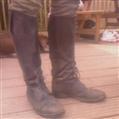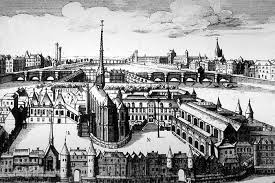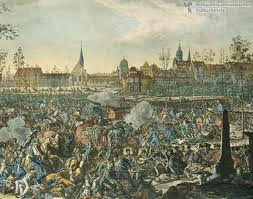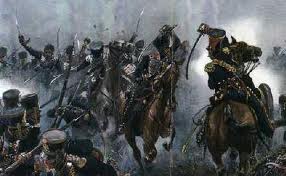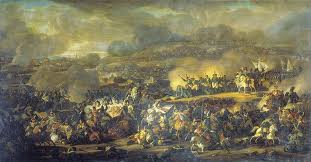I feel as though I’ve abandoned my many faithful readers, recently. Treating you all to silence where there should have been erudition and wisdom or all sorts of exciting knowledge. Or something.
I also feel I should be writing. Seriously writing. But I’ve not been doing that either.
All I can offer in my defense is fine weather–the likes of which we’ve not experienced for a year. Hence I’ve been in the garden, removing the jungle of weeds from the flowerbeds…and after all the rain and foul weather, finding numerous gaps where charming perennials used to flourish. I think it’s safe to say they drowned, bless ’em. Ay, me.
So, what I shall I tell you about now? Hmn.
Well, it’s something I should have perhaps mentioned last week, which marked the 200th anniversary of the Battle of Lutzen.
Where, you say? Lutzen.
It’s in what would now be southern Germany. But 200 years ago, it was in the kingdom of Saxony.
Also, it wasn’t the first time that Lutzen had been the site of a great battle either. The first time for that was 1632…but let’s focus on the events of 200 years ago, shall we?
Let me start by bringing you up to date with the action in central Europe.
 You’ll recall that following his calamitous invasion of Russia in 1812, Napoleon, having lost some 90% of his army of 500,000 plus men, and all their accoutrements, had scarpered home ahead of the few desperate survivors, and had said, when he reached Paris on December 18th, “I know! Let’s build a new Grande Armee of 350,000 men! Isn’t that a clever idea? It’ll be just the ticket!”
You’ll recall that following his calamitous invasion of Russia in 1812, Napoleon, having lost some 90% of his army of 500,000 plus men, and all their accoutrements, had scarpered home ahead of the few desperate survivors, and had said, when he reached Paris on December 18th, “I know! Let’s build a new Grande Armee of 350,000 men! Isn’t that a clever idea? It’ll be just the ticket!”
(I’m paraphrasing…)
Napoleon also demanded that the lost equine element of his Grande Armee be replaced, and thus ordered some 175,000 horses be found for it. However, even with the requisitioning of private horses and farm animals, only 29,000 horses could be found–and this lack would cost the French dear.
But what of the Russians, whose lands he and his armies had defiled?
Well, they had lost a raft of men at Borodino, make no mistake about that. But they did have the benefit of a home court advantage, so they had withdrawn beyond Moscow and to the south and there, had spent the time recuperating, rebuilding, restoring…
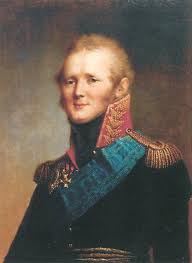 Meanwhile, the Tsar, rather than accept–as Napoleon expected him to–that he had lost (because Napoleon said so, it must be true…), mobilised more forces, used the time for military training, and requisitioning vast quantities of fodder, of wheat, bought muskets and uniforms from Britain, etc.
Meanwhile, the Tsar, rather than accept–as Napoleon expected him to–that he had lost (because Napoleon said so, it must be true…), mobilised more forces, used the time for military training, and requisitioning vast quantities of fodder, of wheat, bought muskets and uniforms from Britain, etc.
And, keeping the French rearguard perpetually busy and in a state of some terror as they retreated, the Cossack bands harassed and plagued them across the plains of Russia as they staggered home, across Poland, and into Prussia.
Also, initially behind the Kaiser’s back, the Prussians had broken with France and entered into an alliance with Russia, and had begun to re-arm and on the 17th March, the Prussians declared war on France. By late April of 1813, the Prussians had an army (not all of the them the greatest thing ever, but what they lacked in military science, they more than made up for in fervour) of some 110,000 men under the command of the fierce General Blucher.
Meanwhile, the Cossacks had kept up their drive to push the French back and back. And it was they, under the leadership of General Prince Chernyshev, who had pushed the Frogs back across the Oder and then out of the Prussian capital, Berlin, (they were also chucked out of Hamburg) abandoning territory and fortresses like mad and they fled west and south across the Elbe, eventually holing up in and round the city of Magdeburg.
Nor was the main body of the Russian army idle. By April 1813, the Tsar had called up even more troops, and had mobilised the army (and their many, many horses) to move west across Lithuania and Poland in order to meet up with their Prussian allies. Initially, they were still under the command of the veteran Field Marshall Kutuzov, but he died in Bunzlau on the 28th April. Alexander appointed General Wittgenstein to take his place.
Moreover, the Russians and Prussians were engaged in secret negotiations with the Austrians, urging them to join abandon Napoleon and join them in a new coalition against him.
As the end of April approached, Napoleon was advancing from Erfurt toward Leipzig… (Saxony had been avoided in the past by his armies, therefore to an army which fed off the land, Saxony was an ideal place to be stationed–it was rich and the girls were buxom and pretty…)
Now, you’ll recall what I said about the French army’s lack of horses? Yes, well, this is where that paucity began to show as it meant that among other things, Napoleon’s forces didn’t have enough mounted men to send them out to either forage or to bring back intelligence about enemy’s troop numbers or positions. (Awkward, very awkward.)
 On the evening of the 1st May, then, Napoleon instructed Marechal Ney to move in and take Lutzen and the villages to the south…his plan was that Ney and his troops would provide cover for the full French advance. Obviously, he ordered Ney to send out patrols and check out the lay of the land. Ehem. Well, that just didn’t happen.
On the evening of the 1st May, then, Napoleon instructed Marechal Ney to move in and take Lutzen and the villages to the south…his plan was that Ney and his troops would provide cover for the full French advance. Obviously, he ordered Ney to send out patrols and check out the lay of the land. Ehem. Well, that just didn’t happen.
Therefore on the 2nd May, the Allies observed said detachment of French troops under Marechal Ney approaching Lutzen–just north of where the allied line was deployed–and this, to the allies, seemed an ideal opportunity for an ambush and a quick victory over the French.
It would prove a harder fought battle than either side anticipated. Initially, the strength lay with the allies, who mightily outnumbered the French troops: the combined Allied forces were some 57,000 troops facing Ney’s 8ooo and the remainder of Ney’s III’d corps.

So…by midmorning, the Russian-Prussian command had those 57,000 troops led by Blucher in place. And at 11.30: “Surprise!”
By 12.30, Blucher was ordering the guns to begin pounding the French positions. The sound of the guns carried to old Ney, who had the shock of his life, one understands. Napoleon (who was some way off) also heard the guns roaring…
At perhaps half past two, Napoleon therefore arrived on the battlefield with the Young Guard, amidst many shouted “Vivat’s!” And it was his presence which steadied Ney’s somewhat wobbley III’d division.
His presence does something else too, it shakes Wittgenstein’s nerve–so he doesn’t press home the advantages he has.
Anyway. It’s a day long hard slog, with French troops fighting the determined Prussians to take, to fall back, to storm and retake and to re-lose the various villages around the place–Klein Gorschen, Rahna, Kaja and Gross Gorschen–in fierce hand to hand fighting, over the stone garden walls…until the bodies were stacked against them.
By four in the afternoon, the main Allied Army complete with the Russian Guard led by Tsar Alexander had arrived on the scene. But Napoleon was throwing his troops into the fray like mad…
 Field Marshall Blucher was wounded in the back and had to be removed from the field–he was bleeding so heavily he thought he was dying. General Scharnhorst also was wounded–fatally as it turned out. Hence local command fell to Yorck…
Field Marshall Blucher was wounded in the back and had to be removed from the field–he was bleeding so heavily he thought he was dying. General Scharnhorst also was wounded–fatally as it turned out. Hence local command fell to Yorck…
By 6.00 in the early evening, Napoleon had got some 80 guns into place to fire at close range into the Allied line, and once that was underway, he himself led the final attack of the Young Guard, giving the order, “La Garde au Feu!” And at that point, the entire Allied line dissolved and fell back in great disorder.
Now we get to the tricksy part though. The French had 20,000 casualties. The Allies, 18,000. Or according to a separate source, the French lost 19,655, while the Prussians lost some 8500 and the Russians 3500. But, because the Allies left the field at the end of the day, leaving the French in possession of it, the French claimed Lutzen as a victory–even though they had a greater number of casualties.
Then something else happened, which really shook the French up. They were, let us say, unprepared for the efficiency and orderliness of the Russian army’s method of retreat. So, in the morning of the 3rd, when they rose to go pick over the field, foraging for uniforms, teeth from fallen soldiers, saddles on dead horses, boots, muskets, valuables, jewelry…they found nothing.
There were no Allied corpses, no abandoned guns, no forgotten flags, no lost rucksacks full of rations, nothing. The Russian rearguard had collected everything and had withdrawn with it in perfect order. And it completely and totally freaked out the French soldiers. I mean, it gave them the full-on heebie-jeebies. They didn’t know what to make of it–and in a way, more effectively than anything else that might have happened, it threw them off their stride. For let’s face it, these guys lived for plunder!
The Allies withdrew further east, to a place called Bautzen, and regrouped.
 Old Papa Blucher didn’t die, but he was kept off a horse for several weeks and made to ride in a carriage, which he didn’t much like. And even then, he kept, to his surgeon’s dismay, breaking open his wound because he wouldn’t stay still…
Old Papa Blucher didn’t die, but he was kept off a horse for several weeks and made to ride in a carriage, which he didn’t much like. And even then, he kept, to his surgeon’s dismay, breaking open his wound because he wouldn’t stay still…
And all the while, more Russian troops kept arriving from the east…and more Prussian troops–especially those of the Landwehr–kept at their military training and were sent to the front…
He didn’t know it, still less would he admit it, but it was the beginning of the end for Napoleon…

